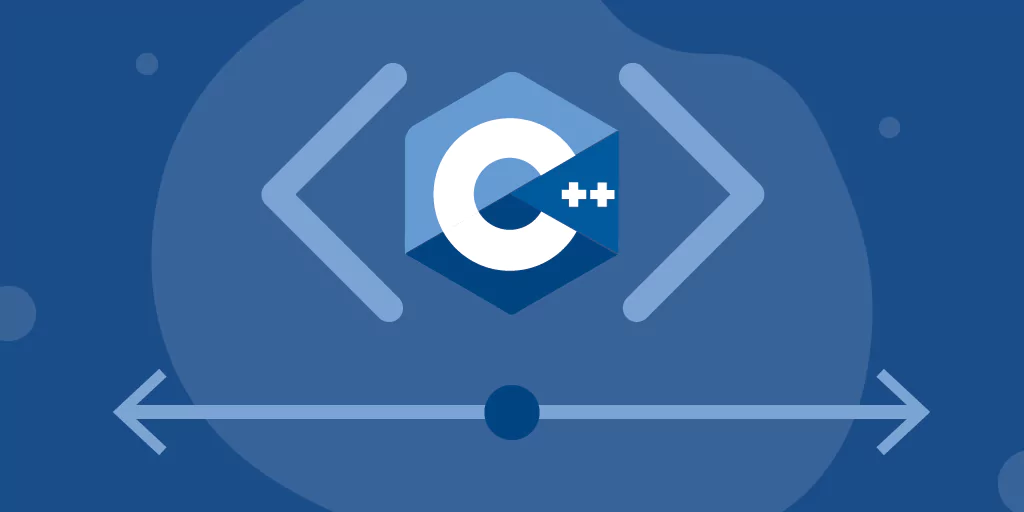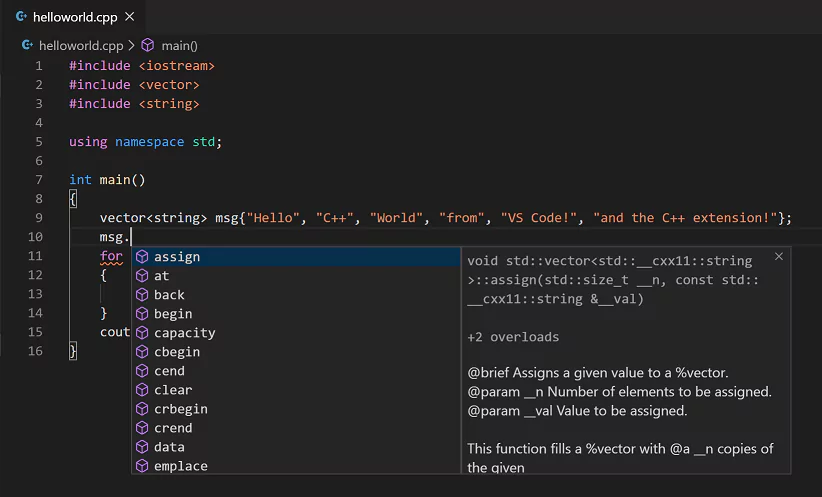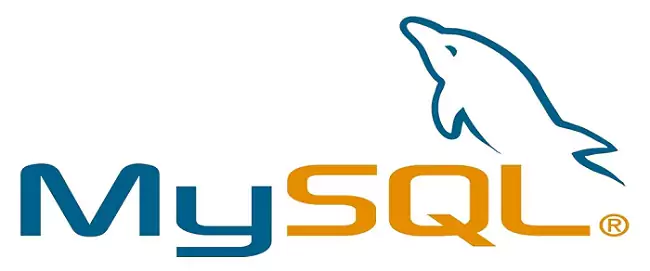
As you stand on the threshold of the exciting programming world, you’re about to enter a realm filled with limitless possibilities. Programming is not merely writing lines of code; it’s about breathing life into technology, solving real-world problems, and significantly impacting the world around you.

✅ AI Essay Writer ✅ AI Detector ✅ Plagchecker ✅ Paraphraser
✅ Summarizer ✅ Citation Generator
In the 21st century, coding has become one of the most sought-after skills globally. From creating engaging video games to developing sophisticated artificial intelligence algorithms, programming is the cornerstone of modern technological innovation. Moreover, the demand for skilled programmers is skyrocketing, making it a profession with excellent job prospects and growth potential.
Among many programming languages, C++ is one of the most influential and widely used. It’s a high-performance language that offers a powerful blend of high-level and low-level features. While it might be more complex to learn compared to some other languages, C++ offers you a deep understanding of the inner workings of a computer and gives you greater control over your programs.
In this article, we will dive into the world of C++, exploring its history, usage, benefits, and how it stands apart from other programming languages. For those new to this language or seeking to deepen their understanding, various C++ guides are available that can offer step-by-step tutorials and insights.
The Genesis and Evolution of C++
C++ is a statically typed, compiled, general-purpose programming language that is considered high-performance. It was developed in 1985 by Bjarne Stroustrup at Bell Labs as an extension of the C programming language, but it wasn’t until the release of C++’s early compilers and libraries that the language started to gain broader adoption outside of Bell Labs. Some of the early and well-known implementations of C++ include Cfront, Borland C++, and Microsoft Visual C++.
The ‘++’ in C++ signifies the evolution from C, as ‘++’ is a syntax from C meaning ‘increment,’ symbolically indicating that C++ is an enhanced version of C.
The unique feature of C++ is its ability to provide procedural programming for intensive CPU functions and control over hardware, as well as including features of object-oriented programming, which manage large-scale software complexity. This powerful combination makes C++ versatile and adaptable, contributing to its sustained popularity over the years. Today it ranks consistently among the top programming languages in use.
The Wide Spectrum of C++ Applications
C++ is renowned for its efficiency and performance, making it the go-to language for a wide range of applications. One of its most notable uses is in game development. High-end AAA game engines like Unreal Engine are built using C++, as the language’s performance characteristics make it perfect for applications that require real-time responsiveness and precise control over hardware resources.
In the realm of system/software development, C++ shines through its ability to interact closely with the hardware. This has made it a popular choice for developing operating systems, browsers, and database systems. Many well-known applications like Google, Netflix, YouTube, and Adobe rely on popular database tools like MySQL and MongoDB, built with C++. Major software like Windows and Linux, and browsers like Google Chrome, have C++ at their core.
With the rise of machine learning and artificial intelligence, C++ has found its niche in developing performance-critical parts of software systems in these areas. Furthermore, it’s utilized in real-time systems, embedded systems, and high-performance computing, which includes scientific simulations, financial trading systems, and more.
C++ in Comparison: Unique Traits and Differences
C++ is distinctive in its blend of high-level and low-level features. It provides the power and flexibility of a low-level language while also supporting high-level abstraction. This makes it uniquely versatile, but also more complex to learn than some other languages.
Here’s a comparison table highlighting some key differences between C++ and other popular programming languages:
| C++ | Python | Java | JavaScript | |
| Typing | Static | Dynamic | Static | Dynamic |
| Memory Management | Manual | Automatic | Automatic | Automatic |
| Performance | High | Low | Moderate | Low |
| Object-Oriented | Yes | Yes | Yes | Prototypical |
| Use Case | System Software, Game Development, Real-time systems | Web Development, Data Analysis, AI | Enterprise Software, Android Apps | Web Development, Server-side scripting |
C++ is statically typed and requires manual memory management, leading to a higher level of control but also demanding more responsibility from the programmer. It generally performs better than Python, Java, and JavaScript, but with the trade-off of being more complex to write and maintain.
Prerequisites To Get Started With C++
Though C++ requires no prior knowledge, it’s generally considered a more advanced language. If you’re entirely new to programming, you might find it challenging due to its syntax and the level of understanding it requires about how computers work. However, don’t let this discourage you! With patience and persistence, you can absolutely learn C++.

Understanding basic computer operations and concepts such as variables, loops, and conditionals can provide a good foundation for learning C++. Knowledge of another programming language, particularly C, can be beneficial but not strictly necessary. Moreover, strong logical and mathematical problem-solving skills can be a great asset while learning C++ or any other programming language.
Why C++? Advantages of Learning this Language
Choosing to learn C++ can bring numerous benefits, whether it’s your first programming language or an addition to your coding repertoire.
Performance: C++ is well-known for its impressive performance capabilities. For applications where speed and responsiveness are crucial, C++ shines bright.
Versatility: C++ can be used to create a wide range of applications, from games to operating systems to scientific simulations and more. This wide applicability makes it a valuable skill in many tech industry areas.
Foundation for other languages: The syntax of C++ has influenced many other languages, including C# and Java. By learning C++, you’ll find it easier to understand and learn these different languages.
Career opportunities: Given its wide usage, learning C++ can open up many job opportunities. From game development to system programming, your skills in C++ can make you a highly sought-after professional in the tech industry.
Conclusion
C++ might seem too complicated at first, but the rewards you stand to gain are immense. It enables you to build efficient and versatile applications and provides a strong foundation for learning other programming languages. Its widespread use in various industry sectors also opens up an array of career opportunities. While it may be challenging, the logical thinking and problem-solving skills you’ll develop along the way will be invaluable.
Related stories:
Should I Quit My Job and Learn Programming? Diving into a Programming Career at 31
Bachelors or Bootcamp – Choosing the Right Path for Aspiring Coders
Breaking Down the Benefits: Top 5 Reasons Why You Should Learn JavaScript in 2023
Follow us on Reddit for more insights and updates.






Comments (0)
Welcome to A*Help comments!
We’re all about debate and discussion at A*Help.
We value the diverse opinions of users, so you may find points of view that you don’t agree with. And that’s cool. However, there are certain things we’re not OK with: attempts to manipulate our data in any way, for example, or the posting of discriminative, offensive, hateful, or disparaging material.